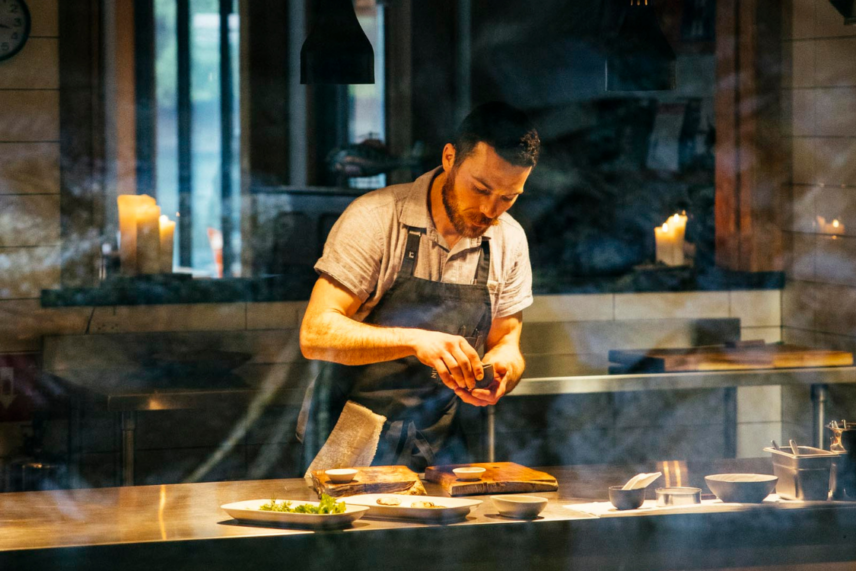The Power of Food
The possibilities of food are limitless; it can heal, it sparks curiosity, it holds memories, and it brings people together. Food is one of the only true universal languages that we all share. These are the musings of Nimmo Bay’s Chef de Cuisine Rob Boland.
Chef Rob’s Journey Into Food
Rob grew up in a suburb of Dublin called Dún Laoghaire. His love and philosophy of food was largely shaped by his family and upbringing in Ireland. Rob raves that his mother is a talented cook, and was the reason that him and his brother developed an interest and appreciation for food.
From a young age, they were her sous-chefs in the kitchen, helping to prep meals and peel vegetables. He got his hands on raw and unprocessed ingredients, developing a deep appreciation for where his food comes from. The produce you can grow in Ireland is lush and rich with nutrients, Rob says it’s of the same caliber as the produce from British Columbia. He feels that he was “lucky enough to have a mom who held food in such high esteem as well. And I didn’t really know that at the time, but that obviously was setting me on some kind of path”.
Before Rob arrived at Nimmo Bay, he was a successful chef. It was a grind, and he was working long hours, but he was making food that he was proud of. He started to realize that something was missing though. The connection to the food he was cooking just wasn’t there, it wasn’t speaking to his soul anymore. So, he set out to find something that would satisfy his curiosities, spark passion, and bring forth a new challenge. Nimmo Bay drew him in, he’d has his eye on the food program here for a while. “I was drawn to Nimmo because of the beauty in the area. The remoteness. I really love remote places. I love the wild.”
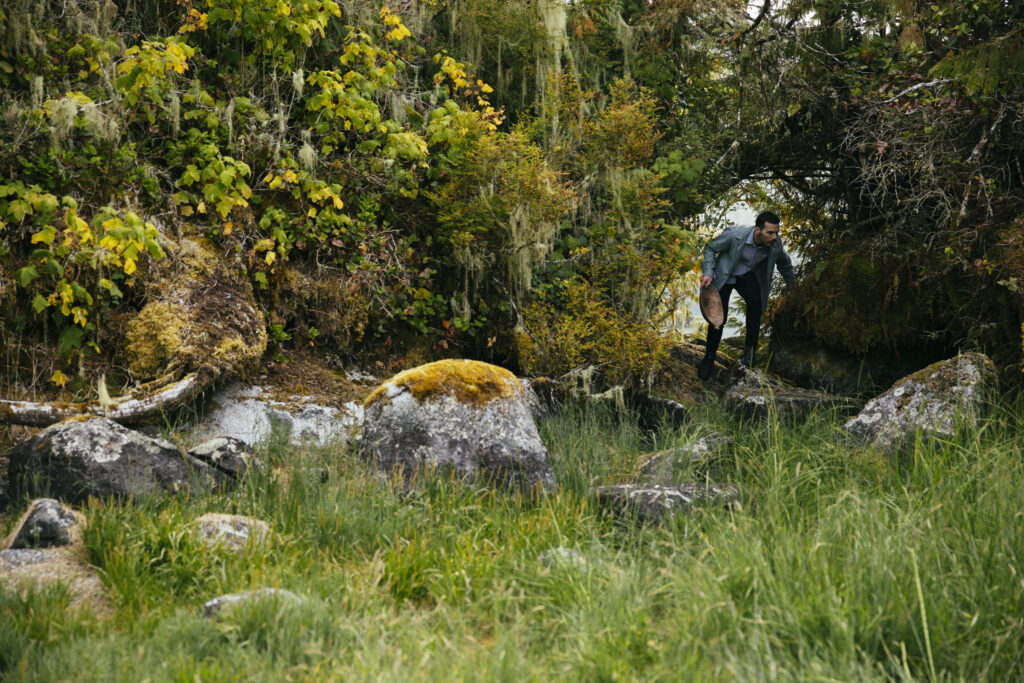
Artistic Influence
Not only is Rob an incredibly skilled chef, but he is also a talented musician. Music for him is a safe space. If he’s feeling stressed or overwhelmed, he picks up an instrument and can centre himself again. The notes, chords, and harmonies that flow through him take years of practice to develop. Even the most naturally gifted musicians spend vast amounts of time practicing. With dedication and persistence poured into the craft, Rob has reached a stage where he’s able to express emotion and story through the music he creates.
Rob shares that there are parallels between the music he loves and the art of cooking. “You need a good foundation, you need discipline, dedication, and a lot of practice to get to the point where you can use the instrument as an extension of yourself and use it to communicate with other people. I think the same can kind of thing can be said of cooking”. There is no easy path or skipping of steps when developing your own voice through food. A chef must build a strong foundation of essential skills and tools first. You strive for excellence, you fail, and then you learn and come back stronger each time you step foot in the kitchen.
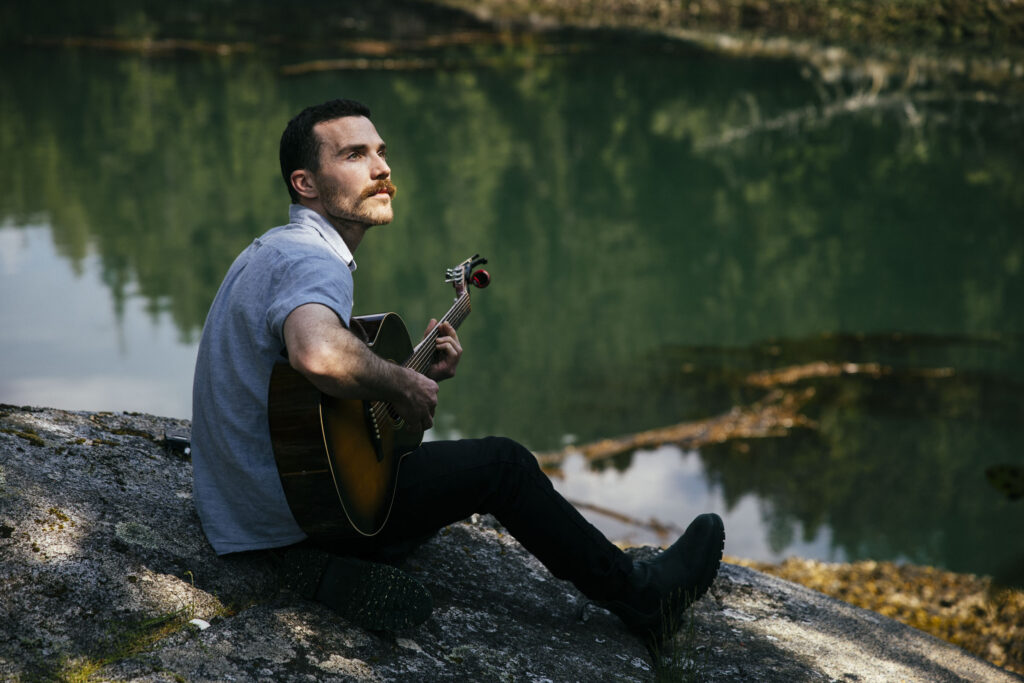
Nimmo’s Food Philosophy
When it comes to Nimmo Bays’ food ethos, respect for the ingredients is at the heart of everything that we do in the kitchen. Even before Rob was working at the resort, he could tell from the photos we’d post online that we treated ingredients with integrity. “I always thought the food was beautiful, but in a different way. It’s beautiful and presented very naturally, the ingredients weren’t over manipulated to the point that they weren’t recognizable…”.
When you’ve got the best of the best vegetables, seafood, and meat, you let those things shine as authentically as possible. Our goal is for the dishes that we serve to tell stories of the region. We’re creating experiences for guests that truly showcase the local beauty and bounty of the Great Bear Rainforest and British Columbia. When composing a dish of spot prawns, Rob plays off the colour pallet of the ocean. He’ll use greens, whites, and black to mimic the underwater environment and transport you to that place.
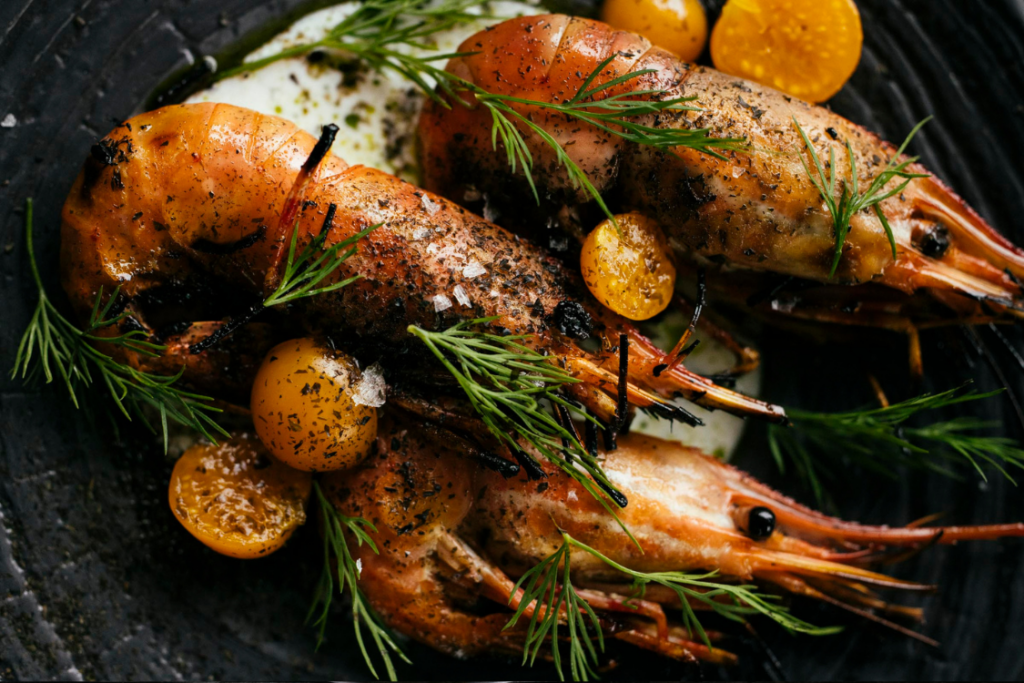
Rob is starting to paint a picture that demonstrates how Nimmo Bay does food different. The care and importance we place on where our ingredients come from, how they’re grown, and how we cook and present them is unmatched.
The Menu
So how do we determine what’s on the menu at Nimmo Bay? We look towards mother earth as our guide. The dishes we create are seasonal and the ingredients are ethically harvested using the longstanding First Nations knowledge of the territory we inhabit.
First, it’s essential that the entire kitchen team builds a relationship with the ingredients that they’re using. In most kitchens, your produce for the week gets delivered to the door. Chefs are further removed from the process, less connected to where the food was grown, and you make use of whatever you’re sent.
At Nimmo Bay, the land that surrounds us is bursting with fresh flavours and delicacies. Rob is always in awe of what’s available, “it’s rare that you have such an abundance at such at your fingertips”. Our kitchen team can forage nutritious and delicious ingredients from both the land and ocean, right outside our doorstep. The cold waters around the resort are laden with seafood. The forests are lush with mushrooms, greens, berries, and so much more. And while Nimmo Bay does source ingredients outside of the resort, they come from a collection of local farms on Vancouver Island.
We call on the knowledge of the First Nations when foraging. Nimmo practices the honourable harvest whenever we take a trip into the forest or dive into the ocean. It’s all about creating reciprocity, with the earth and with other people. For Rob, this is always top of mind, “we only take what we need, and we leave the rest so that the plants grow back in abundance again next year. We’re always thinking about the next person, the next animal, the next season, and the next generation”.
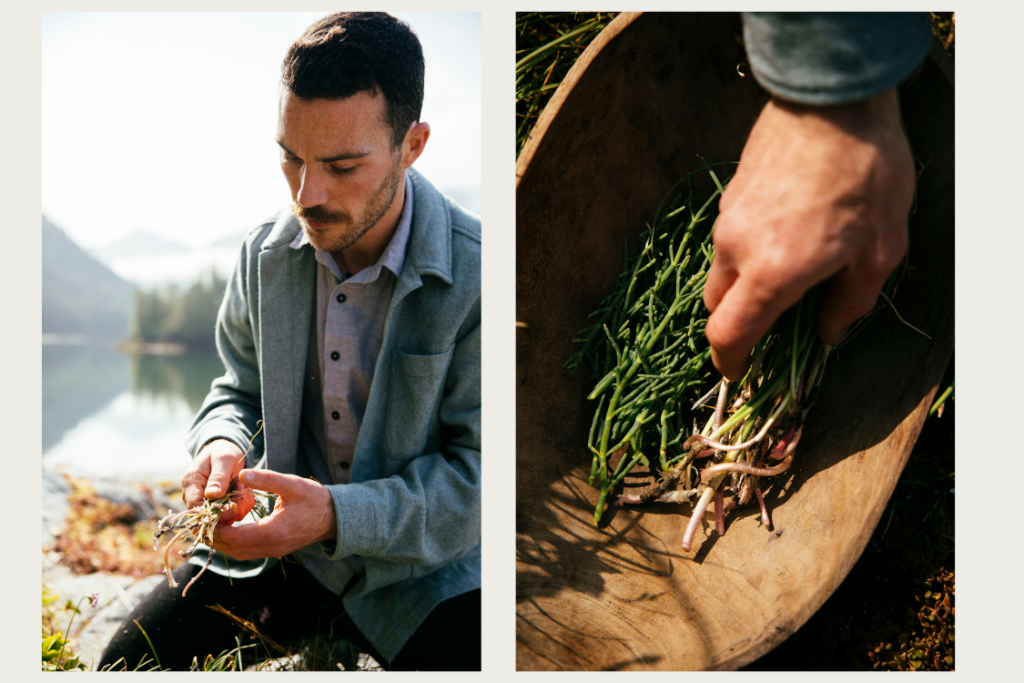
Ingredients of the Pacific NorthWest
Chef Rob has an incredible understanding of the seasonality our menu experiences throughout the year.
“We start our season off in early spring when snow is still melting in the alpine and the night air is bitterly cold. The warmth of the midday sun brings the promise of vegetation springing back to life. Seeds being sown by our farmers and fresh produce filling our fridge once again. Late spring brings a surge of green lettuces, mustard greens, sea asparagus, peas, nodding onions, and fine herbs. Spring makes way for the bounty of summer where slower maturing fruits and vegetables start to blush with colour. Tomato, peach, summer squash, berries, and sweet peppers start to colour our plates. Fall brings with it a different colour palette. Muted orange from hearty winter squash, sweet carrots, rutabaga, potatoes, and late brassicas signify the coming of winter and the turndown of another year at Nimmo Bay”.
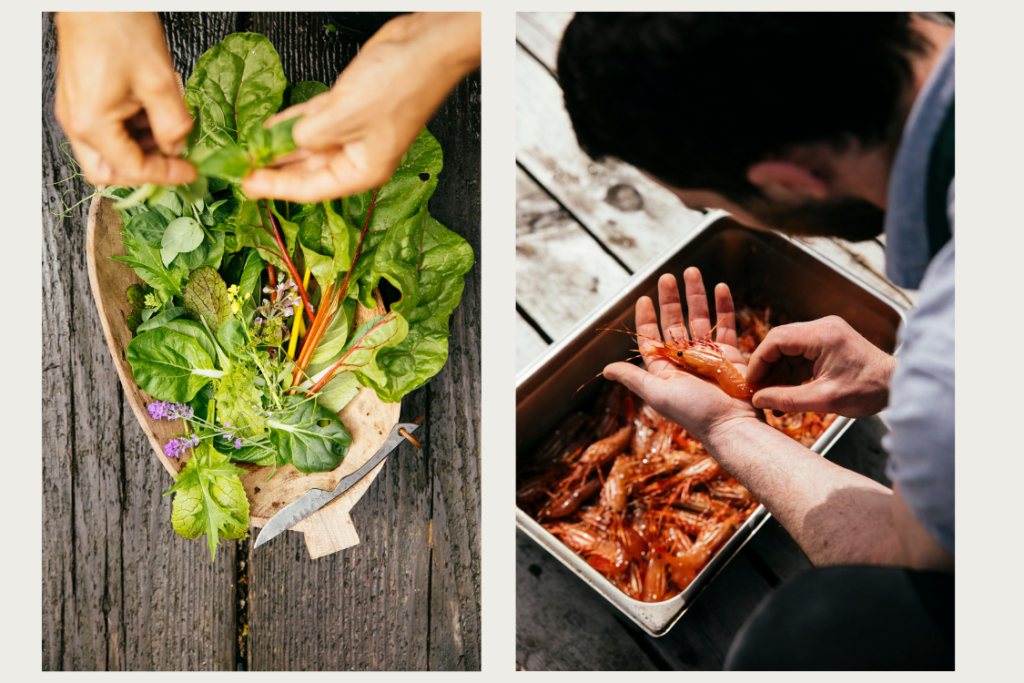
Creating a World-Class Dish
The mind of a chef is complex, “I think a chef’s most valuable tool is their mental mind map of all the ingredients they’ve ever encountered and all the preparations they’ve ever used over the course of their career”. There’s a reason that a meal at a world-class restaurant is on a whole other level.
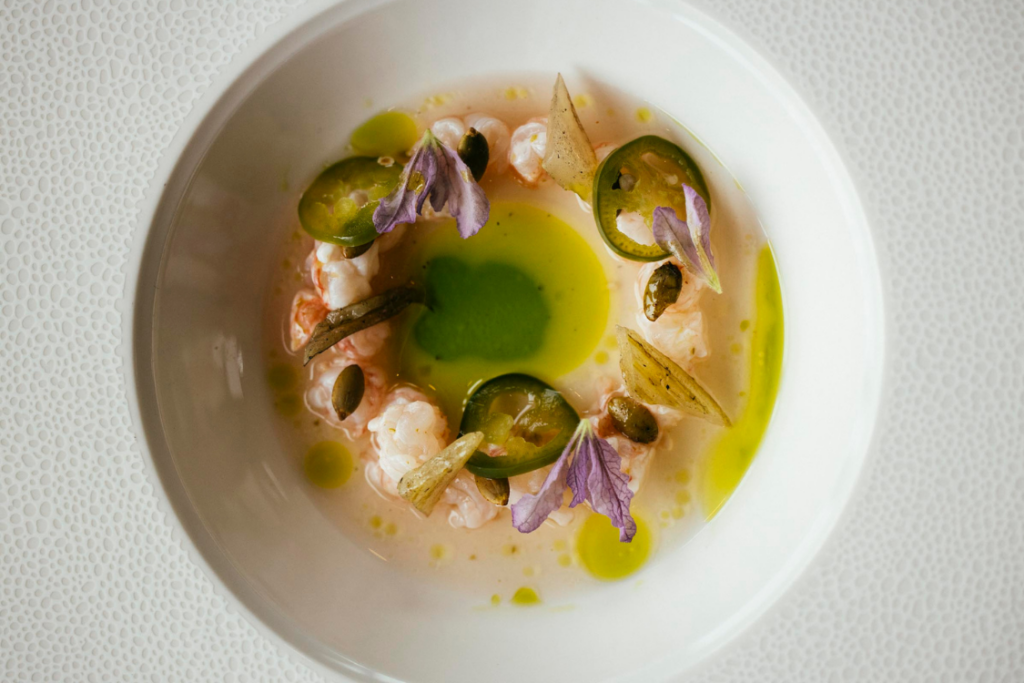
For Rob, a truly mind-blowing dish is rich in contrast. You can create contrast in a few ways. One is through flavour, “it[contrast] is achieved by using salinity, fat, acid, heat, herbaceousness, florality, savouriness, all these different things play off each other”. The second is through visual contrast. Chefs will play with natural colours, shapes, plating techniques, and dining settings. Finally, “contrast is created with texture in food. So you can have crispy, crunchy, chewy, tender, soft, light, and heavy”. Playing with contrast creates the perfect balance.
We invite you to sit down at our restaurant Little River and experience the local flavours, ingredients, and perfectly built dishes that the kitchen team has poured their hearts and souls into creating.
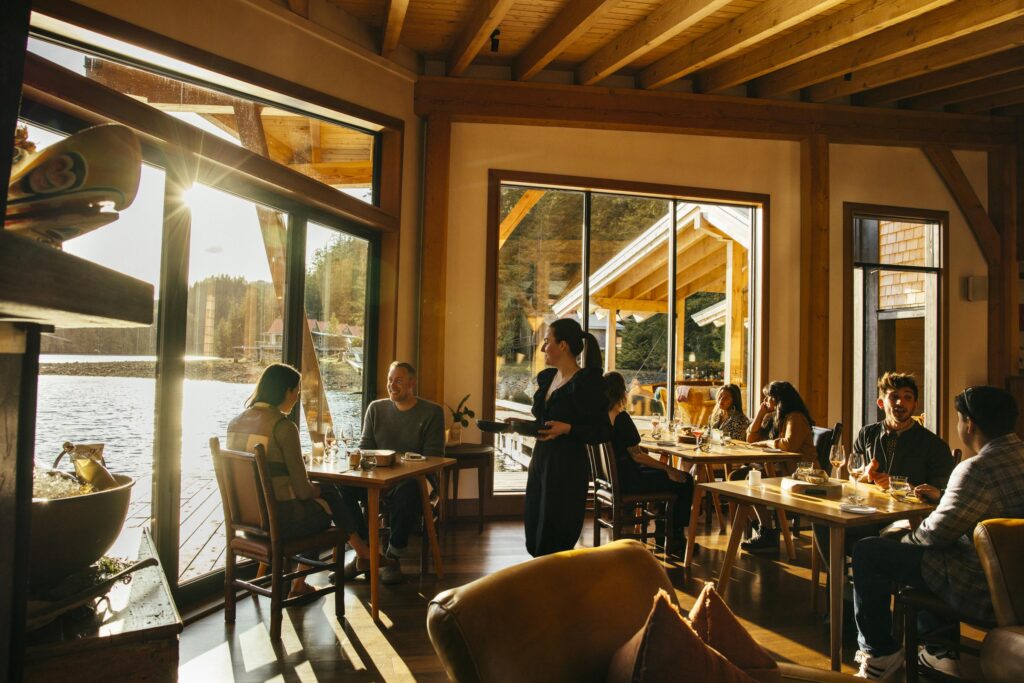
Photography: Jeremy Koreski
Words: Alexandra Janes
